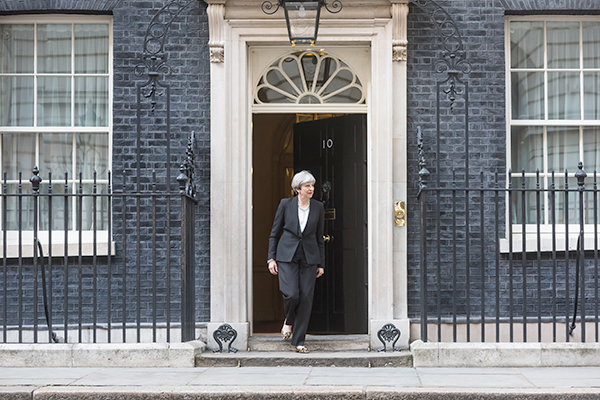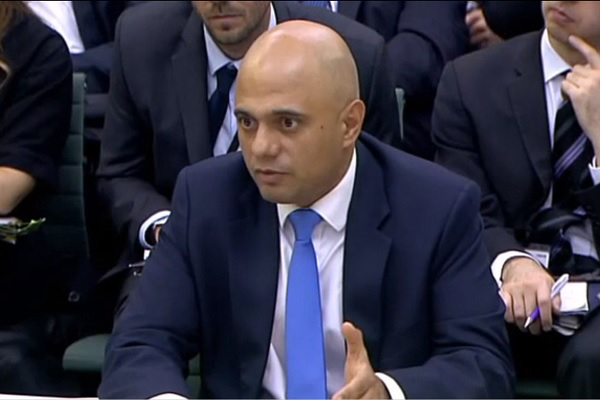You are viewing 1 of your 1 free articles
 Jules Birch
Jules BirchHousing policy seems set to shift, but how far exactly?
Jules Birch cautions against raised expectations of a change in direction ahead of the Autumn Budget next month
Two of the many things about housing that have been obvious since 2010 could be set to change at last.
First, at a time when interest rates are at a record low, it makes sense to borrow to invest in homes and the infrastructure for them.
Sajid Javid committed this heresy against austerity when he told The Andrew Marr Show on Sunday that “investing for the future, taking advantage of record low interest rates, can be the right thing if done sensibly”.
Second, private house builders will build homes only as fast as they can sell them, so if we want more homes the state needs to intervene.
As I’ve argued many times before, it makes financial sense even for a government committed to austerity to commission homes directly, rent them at first and then sell them to recoup the money.
Ministers have taken tentative steps towards this position in the last few Budgets, but according to a report in the Sunday Times, a giant leap towards it is under consideration for 22 November.
“We have been here many times before in the run-up to Budgets, only to see incremental baby steps on the day itself.”
Based on a plan by thinktank Respublica, this could involve a £100bn National Housing Fund to develop 500,000 Rent to Buy homes. With Philip Hammond looking for “big and bold ideas”, that would certainly qualify.
However, I qualified my introduction with “could be” for a reason. We have been here many times before in the run-up to Budgets, only to see incremental baby steps on the day itself.
Against that, the communities secretary has been making the case for borrowing for investment for some time, notably in his brief tilt at the Conservative leadership with Stephen Crabb.
Read about Theresa May’s announcements last month
The idea then was to issue new government bonds to fund a £100bn Growing Britain Fund, but that was for infrastructure rather than housing as such.
The Respublica idea is different – if not exactly new. A form of Rent to Buy is already the basis of the London Living Rent and other schemes around the country, the Housing White Paper mentioned funding Rent to Buy in February, and last year a national scheme was proposed by thinktank Renewal, and the National Housing Federation set out a slightly different ‘buy as you go’ deal.
All of these schemes raise questions about the nature of the homes and who they are aimed at. Would Rent to Buy be additional to or instead of genuinely affordable social rented homes? Would it complement or conflict with other homeownership schemes? What happens if house prices fall before tenants get to buy?
“Would Rent to Buy be additional to or instead of genuinely affordable social rented homes?”
But beyond those crucial details there is no doubt that the scheme has both genuine potential and widespread support.
Respublica argued in a report last year that a £100bn National Housing Fund could mean at least an additional 40,000 new homes a year, while creating 180,000 new jobs and boosting the public finances by £3.4bn.
Government and housing associations would have equal shares in the fund and finance would come in 10 annual tranches of gilts issued at low interest rates and repayable after 50 years.
Rental income would meet the costs of interest payments and letting and maintenance of the homes but over time the net rental income would generate a surplus to deliver more homes.
Options might include homes with rents linked to the National Living Wage, or to buy in five years’ time at today’s prices or let at sub-market rents to allow tenants to save for a deposit.
However, it remains to be seen how much, if any, of this will make it past the Treasury and actually appear in the Budget.
Asked about it by Andrew Marr on Sunday, Mr Javid said: “I’m sure the Budget will be covering housing, but what I want to do is make sure that we’re using everything we have available to deal with this housing crisis.
“And when that means, for example, that we can sensibly borrow more to invest in the infrastructure that leads to more housing, take advantage of some of the record low interest rates that we have, I think we should be considering that.”
Note his emphasis on infrastructure rather than housing there – he reiterated the White Paper target of 275,000 to 300,000 new homes a year but went on to mount a defence of the extra £10bn for Help to Buy when asked whether it might not be better to spend it directly on homes.
“Note Mr Javid’s emphasis on infrastructure rather than housing.”
And the impression that there may be less to this than meets the eye was strengthened by the series of evasive answers that Mr Javid gave at the end of the interview when asked whether the government would fund sprinklers in tower blocks.
After a Conservative conference in which even an extra £2bn for social housing was dismissed by many as small beer, pre-Budget stories come with an obvious danger of raising expectations that get dashed when more modest proposals get announced on the day itself.
Things are moving at last on housing – but it remains to be seen how far.
Jules Birch, award-winning blogger











